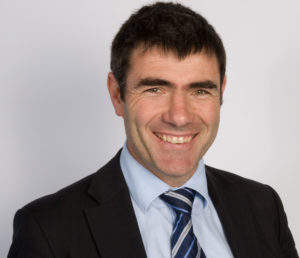Revelations there have been no prosecutions after investigations into blatant fish dumping, catch misreporting, and high grading aboard coastal and deep sea trawlers are alarming.
Even more disturbing is the refusal of officials to acknowledge and address the underlying problems embedded in the Quota Management System (QMS). Realistically, the Ministry for Primary Industries is never going to give itself a work-over, but there are risks for the government if it allows this mismanagement to continue into 2017, election year.
After days of denials Nathan Guy announced an inquiry into some decisions made by his officials not to prosecute offenders identified during two investigations, Operations Achilles and Hippocamp.

He has since asked for advice on fast-tracking the rollout of video and electronic reporting on commercial vessels. We now understand a government tender to install and monitor the video cameras has been awarded to Trident, an industry-owned research company.
Meanwhile, John Key has had to provide assurances that National Party President Peter Goodfellow leaves the caucus room during any discussions about the fishing industry, to avoid any conflicts of interest due to his
substantial financial stake in Sanford.
Many New Zealanders are concerned these issues are just symptoms of a system corrupted by self-interest.
A Commission of Inquiry is needed to determine why the recommendations to prosecute offenders were not acted upon. It also needs to examine the fundamental principles guiding fisheries decision-making, because unless these issues are squarely addressed they will fester.
We cannot underestimate the task facing a Commissioner because it seems the industry-Ministry partnership model that has developed over the past decade now makes it difficult for the Ministry to distance themselves from commercial fishing interests.
Identify the problems
Despite the political threats there are positives from this ongoing saga. This process has exposed the unhealthy shift of power, from the fishermen on the water to quota shareholders on land.
Many of today’s fishermen are like the tenant farmers of yesteryear, given a share of what they are told to produce. The landlord decides what quantities of each species need to be produced each trip and the fisherman sets sail on a mission to fulfil the proverbial “shopping list”. Success of the fishing trip will be how close his catch matches that list.
If a fisherman is not going to be paid sufficient returns for his catch he has two choices, either return to port with the catch and pay a fine called ‘deemed value’ or toss it over the side.
Another issue is that Quota Management Areas are large but fishing effort is not evenly spread. These days fishing fleets are based in the main ports for most of the year. Once highly productive areas like the Hauraki Gulf, Bay of Plenty and Hawke Bay are now overfished. LegaSea has been actively involved in meetings with MPI and stakeholders to restore abundance in these areas.
After 30 years of experimentation maybe it’s time to stop tinkering and instead promote a lasting solution.
An inshore zone
We need to acknowledge that using damaging industrial, non-selective methods such as trawling and dredging inshore is no longer appropriate.
LegaSea has been promoting the need to move the QMS offshore, beyond the 100m-depth contour and create an inshore zone managed by the community. Marine resources and fisheries can then be administered to meet local needs and aspirations for future generations.
As we learn more about the potential value of having abundant fisheries and what a thriving recreational fishing industry can contribute to the New Zealand’s economy it doesn’t make sense to allow the ongoing abuse of our marine environment by a few people driven only by profits.





